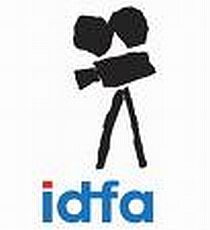


Idfa 2011

It is a bombardment of impressions to be at the biggest documentary film festival in the world. Films, meetings, receptions, ”hello, how are you”, ”nice to see you again”, people with badges walking in the streets around Rembrandtsplein, the square with the huge documentary tent where you can go and get your accreditation papers, catalogues and tickets. It is a fest for the documentary genre, indeed it is. Wonderful. Screenings are sold out so many professionals (programmers from other festivals, buyers from television, distributors) go to the Docs for Sale building to watch the films, or sit at the hotel rooms to get the films online. Rembrandtsplein, the statue of the master stands in a position as was he overlooking what is happening with all these documentaries and documentarians. Logistically it seems to work perfectly, artistically, the state of the art, the level of quality of the documentary today and tomorrow…
Yes, how about that? Monday morning, I paid a short visit to the 19th edition of the Forum for International Co-financing of Documentaries down one of the canals at the beautiful Compagnietheater. It was the start of the festival, the hall was full, good atmosphere, very little money around the table due to the general crisis and to the crisis for the creative documentary in public television. But again the number of project applications to come and pitch was huge, 500 it was, 10% made it to the table so to say, or tables as the Forum today does have several options for the pitching – in a big hall in the mornings, and in smaller halls in the afternoons.
Same procedure as last years, I have to say, the female moderation team, Karolina Lidin and Jess Search, works better than the male, Rudy Buttignol and Axel Arnö, that is not well prepared when it comes to knowing the broadcasters, the first one seems to be more interested in having people in the hall hugging each other to create atmosphere. Continuing in this my slightly grumpy evaluation, it is for me, who has attended all 19 years (!), fine to listen to the project presentations, whereas the comments from the broadcasters are pretty predictable and mostly like ”we will talk more later”. The only one who is really challenging the ones pitching with questions and comments is Nick Fraser from BBC. I listened to 7 presentations, most of them (boring) mainstream investigative, interview based television programmes, two of them with Film potential: ”Tea Time” from Chile to be directed by Maite Alberdi (who has a film in competition, ”The Lifeguard”, ”Map” by Spanish director Léon Siminiani, a personal film that I knew from the DocsBarcelona 2011, plus Justin Webster’s, as it was said from a panelist, damn good story ”I will be Murdered” from Guatemala, supported by BBC and TV3 Catalunya. Webster places himself strongly between the journalistic and the creative documentary.
Financing possibilities are small these days, when it comes to television, are there other options coming up? This was discussed at a meeting on video-on-demand, called ”revenues-on-demand”, you can read about in an article, click below. And do not get confused, I was not at the meeting as the photo (from Edinburgh!) indicates, sorry Peter Jäger from Autlook Films in Austria, not my fault – Peter is much younger than me and he does not smoke cigars!